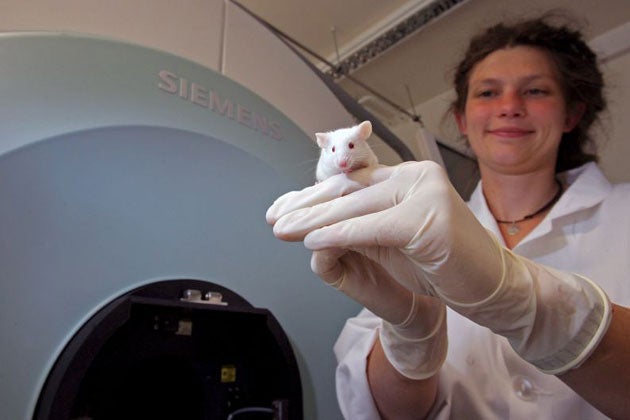Experiments on animals rose to 3.2m last year

Your support helps us to tell the story
From reproductive rights to climate change to Big Tech, The Independent is on the ground when the story is developing. Whether it's investigating the financials of Elon Musk's pro-Trump PAC or producing our latest documentary, 'The A Word', which shines a light on the American women fighting for reproductive rights, we know how important it is to parse out the facts from the messaging.
At such a critical moment in US history, we need reporters on the ground. Your donation allows us to keep sending journalists to speak to both sides of the story.
The Independent is trusted by Americans across the entire political spectrum. And unlike many other quality news outlets, we choose not to lock Americans out of our reporting and analysis with paywalls. We believe quality journalism should be available to everyone, paid for by those who can afford it.
Your support makes all the difference.More than 3.2 million experiments on animals, including dogs, cats and monkeys, were carried out last year – the highest total since the early 1990s.
Government figures showed it had presided over a steady rise in the number of animals used for research in the past 11 years, despite promises in opposition to cut the numbers. Ministers insisted the experiments were tightly controlled and essential for medical research but anti-vivisection groups accused the Government of reneging on promises to look for alternatives.
The number of experiments went up by 190,000 to 3,202,000 last year, a rise of 6 per cent. The main reason for the rise was the growing practice of breeding genetically modified mice and fish for tests in which disease-causing genes are inserted or removed. About 1.15 million such procedures took place last year, an increase of 114,000. The Home Office also recorded the use of monkeys on almost 4,000 occasions but the number of tests was down by 6 per cent.
Wendy Higgins, of the Dr Hadwen Trust, a charity that promotes humane medical research, said: "For a government that claims animals are only used when absolutely necessary, this is a shameful record indeed."
Meg Hillier, a Home Office minister, said: "Advances with non-animal test methods continue to be made but at present licensed animal use remains essential to develop improved healthcare technologies."
Join our commenting forum
Join thought-provoking conversations, follow other Independent readers and see their replies
Comments